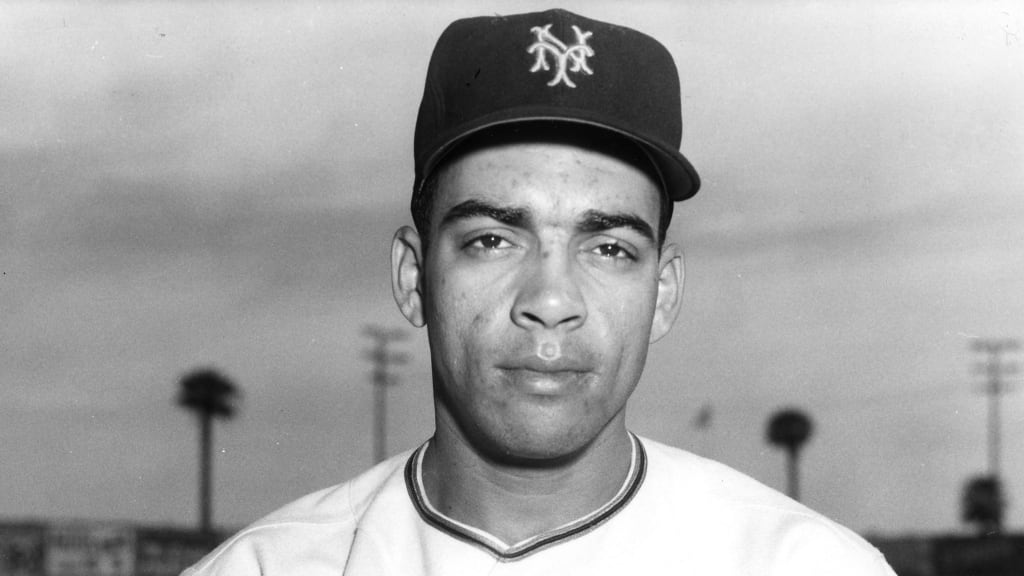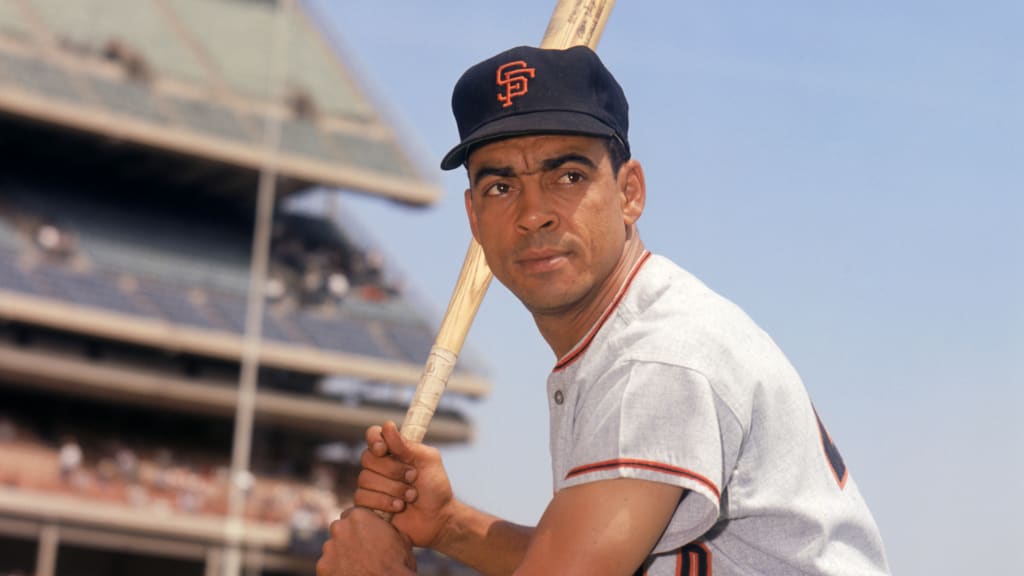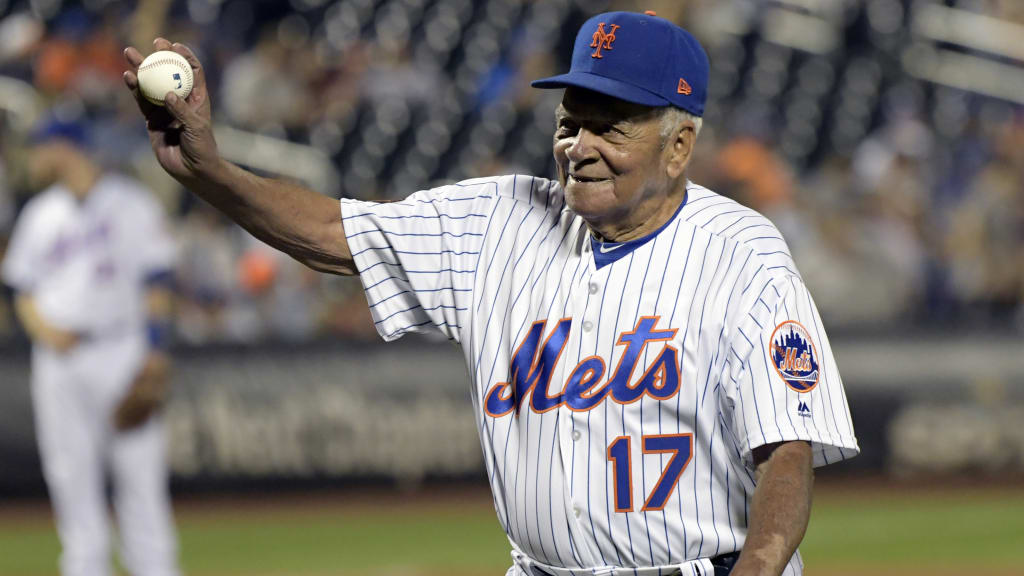
Nine years after Jackie Robinson broke the color barrier in Major League Baseball, the Dominican Republic saw one of its own not only make history, but set an entire nation on a path to changing the landscape of baseball forever.
On Sept. 23, 1956, Osvaldo Virgil Sr., or Ozzie Virgil, made his Major League debut with the New York Giants, becoming MLB’s first Dominican-born player. Now, 67 years later, almost 900 players from the Dominican Republic have donned Major League uniforms, the most of any nation besides the United States. On Opening Day 2023, there were 104 Dominican Major Leaguers, far outpacing other countries and territories outside the continental U.S.
It all started with Virgil that day at the Polo Grounds, where he went 0-4 against the Phillies while playing third base.
“He means a lot,” said Padres superstar Juan Soto. “He was the first Dominican coming to the big leagues and opened the doors for a lot of Dominicans -- and not only Dominicans, for all Latin players.”
In fact, by 1956, Cuba, Puerto Rico, Venezuela, Mexico, Panama and even Colombia had representation in the big leagues; Colombia’s Luis Miguel Castro, known as Lou Castro, was the first Latin American player in MLB in 1902. But with the debut of Virgil, who would soon be followed by famous countrymen Juan Marichal and Felipe Rojas Alou (along with his brothers Mateo and Jesús), the stage was set for the impact and influence we’ve come to know and expect from the Dominican Republic.
Speaking to Dominican sports journalist and historian Mario Emilio Guerrero for his biography “Yo, Virgil, Mi Historia” (I, Virgil, My Story), Virgil recounted receiving a call directly from Giants owner Horace Stoneham, who informed him that he was being called up for the last few days of the 1956 season -- a debut that was delayed by a day, due to Virgil’s car being parked on the wrong side of his street in New York and being towed.
“The emotions were indescribable,” Virgil told Guerrero of his first few moments on the Polo Grounds field as a Major Leaguer. “What I had dreamed about since I was little and worked so much for since I arrived in New York in 1947, overcoming so many obstacles, was a reality.”
Born in the town of Monte Cristi, Dominican Republic, in 1932, Virgil, who is now 91 years old, moved with his family to New York as a teenager, attending high school in the Bronx, serving in the U.S. Marines and later being signed by the Giants in 1952, one year before his Minor League debut.
“That September 23rd will always be in my memory, because that day I was the protagonist of a great historical achievement, without precedent in Dominican sports,” Virgil said in his aforementioned biography.

Virgil would play two more games for the Giants in 1956, going 5-for-8 with a double, triple, two runs scored and two RBIs in a season-ending doubleheader against the Phillies.
Virgil hit .235 in 96 games for New York in 1957, and one year later, the man nicknamed “Oregano” would become the first player of color to play for the Detroit Tigers in 1958.
After playing in parts of nine seasons with the Giants, Tigers, Kansas City Athletics, Orioles and Pirates, Virgil retired in 1969. After his playing career, Virgil was a long-time coach at the Major League level, first for the Giants and then notably under Hall of Fame manager Dick Williams for the Expos, Padres and Mariners.
Virgil also was a successful Winter League skipper, winning championships in the Dominican Republic and Venezuela.
As Marichal and the Rojas Alou brothers were followed by subsequent waves of talent from the Dominican Republic making their mark between the lines, a younger generation also saw Virgil imparting his knowledge as an instructor at the big league level, with that visibility perhaps reaching its pinnacle with the 1984 Padres and their memorable run to the World Series.
“Undoubtedly, his merits are bigger, even double,” said the commissioner of baseball in the Dominican Republic, Junior Noboa, who is a veteran of parts of eight seasons in the Major Leagues, a longtime D-backs executive and a former manager and GM of several teams in the Dominican Winter League. “I remember when we were young, to see him coaching in the big leagues also opened doors for us. We said, ‘Wow, we not only have the opportunity to be players, but Dominican talent can also be seen as coaches, managers.’”
Since Virgil’s debut in 1956, the Dominican Republic has produced four Hall of Famers (Marichal, Pedro Martínez, Vladimir Guerrero Sr. and David Ortiz), with a fifth (Adrián Beltré) almost assuredly joining them in 2024, and of course Albert Pujols on the horizon in 2028. Add to that seven MVP Awards, four Cy Young Awards and seven Rookies of the Year.
It began with little fanfare in 1956, but the legacy of Ozzie Virgil Sr. -- whose son, Ozzie Jr., was a two-time All-Star in a 11-year Major League career as a catcher with the Phillies, Braves and Blue Jays -- lives on in the Dominican Republic and beyond.

“He opened doors,” Soto said. “It feels great, it feels amazing. I got to meet him a couple years ago, and it was just great.”
In mid-November, the Águilas Cibaeñas -- who won a Dominican League championship with Virgil at the helm in 1971-72 -- will play the Tigres del Licey in the “Titans of the Caribbean” series at Citi Field, an event dedicated to Virgil’s legacy and which will be played at the venue where he was named an honorary Mets coach in 2018.
“That’s a name that carries serious weight,” Noboa said of Virgil, who also has the local airport in Monte Cristi named after him. “All the doors were opened because of Osvaldo Virgil’s debut. I hope we, as Dominicans, can give him the value and recognition he deserves.”
